When it comes to addressing the difficult topic of termination due to non-fulfillment of duties, clarity and professionalism are key. Crafting a letter that outlines the reasons for this decision can be challenging, but it's essential for maintaining a respectful tone. By focusing on the facts and offering an opportunity for the individual to reflect, you can ensure the message is conveyed effectively. If you're looking for a comprehensive template to guide you through this process, keep reading for more insights and examples!

Subject Line Optimization
Subject lines are crucial for capturing attention and conveying the essence of the message. A well-optimized subject line for a termination letter due to non-fulfillment of duties might include specific keywords that highlight the seriousness and context of the matter. For instance, "Notice of Termination Due to Non-Fulfillment of Duties" clearly outlines the purpose, while including the term "Notice" indicates formality. Adding a date or reference number, such as "Termination Notice - [Employee Name] - [Date]", not only personalizes the message but also makes it easy to locate and reference later. Clear and direct subject lines facilitate efficient communication and ensure that the recipient grasps the significance of the content immediately.
Clear and Direct Opening Statement
Termination of employment due to non-fulfillment of duties is a serious matter requiring clarity and professionalism. On [specific date, e.g., October 1, 2023], we regret to inform you that your position as [job title, e.g., Marketing Manager] at [company name, e.g., XYZ Corporation] will be terminated. This decision arises from documented instances of inadequate performance and failure to meet established responsibilities outlined in your job description, including [specific duties, e.g., achieving sales targets, submitting reports on time]. Despite previous discussions and opportunities for improvement, there has been no noticeable progress.
Detailed Explanation of Non-fulfillment
Non-fulfillment of duties in a workplace can lead to termination due to several critical factors affecting organizational performance. For instance, consistent tardiness, defined as arriving late to work more than three times within a month, disrupts workflow and impacts team efficiency. Failure to meet key performance indicators, such as achieving at least 75% of sales targets in quarterly assessments, places additional strain on colleagues and reflects poorly on overall company goals. Not adhering to established protocols, for example, neglecting mandatory safety training courses, can jeopardize workplace safety and increase liability risks. Moreover, inadequate communication with team members, resulting in misunderstandings and incomplete projects, diminishes collaboration and hinders business growth. Such cumulative failures demonstrate a pattern that contradicts the expectations outlined in the employee handbook, ultimately leading to the decision to terminate employment.
Reference to Previous Warnings or Discussions
The termination of employment due to non-fulfillment of duties is often a serious matter, emphasizing the importance of previous warnings or discussions. Numerous documented instances may highlight the issues, such as performance evaluations showing a consistent decline in productivity metrics or unmet project deadlines exceeding the company's expectations. Organizations typically maintain a record of formal warnings issued, including dates and specific concerns raised regarding employee responsibilities, reflecting an ongoing effort to address deficiencies. Performance improvement plans might also have been established, usually spanning a period of several weeks, with follow-up meetings scheduled to assess progress. In some cases, emails or memos may serve as a trail of communication, documenting the employee's lack of response to concerns discussed. Ultimately, the decision for termination often follows a structured process designed to uphold company standards while ensuring fair treatment of all employees involved.
Concise Termination Notice and Next Steps
Concise termination notices inform employees about the cessation of their duties due to non-fulfillment of contractual obligations. Legal documents, such as termination letters, must include the employee's name, position, termination date, reasons for termination, and any pertinent details regarding benefits or final pay. It is crucial to follow specific workplace policies and local labor laws to ensure compliance and avoid potential disputes. Clear communication about next steps can aid in a smooth transition, covering topics like the return of company property and the scheduling of exit interviews.
Letter Template For Non-Fulfillment Of Duties Termination Samples
Letter template of notification for dismissal for unmet responsibilities.
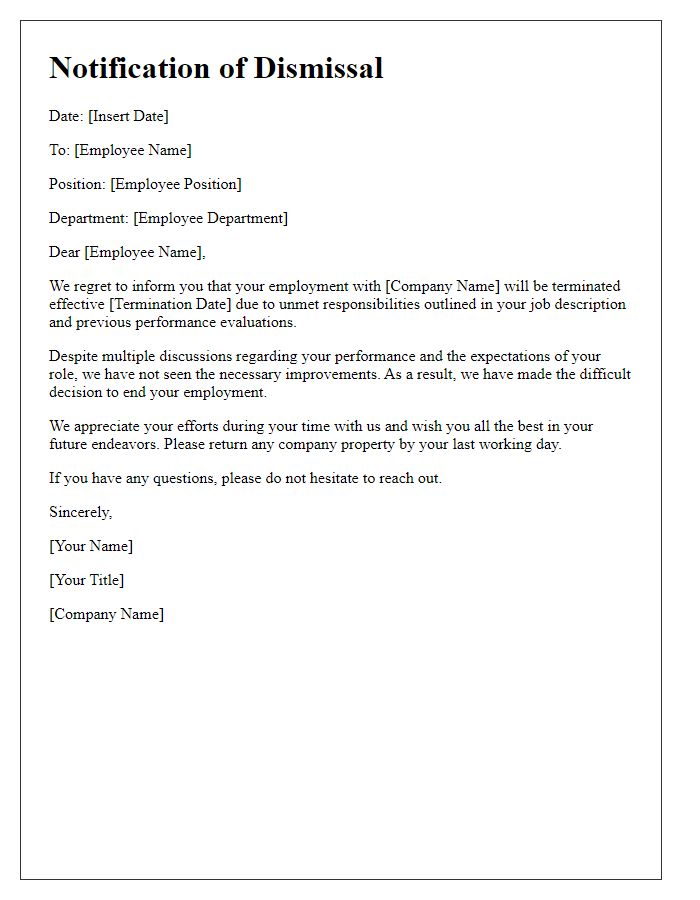
Letter template of employment termination for failure to perform duties.
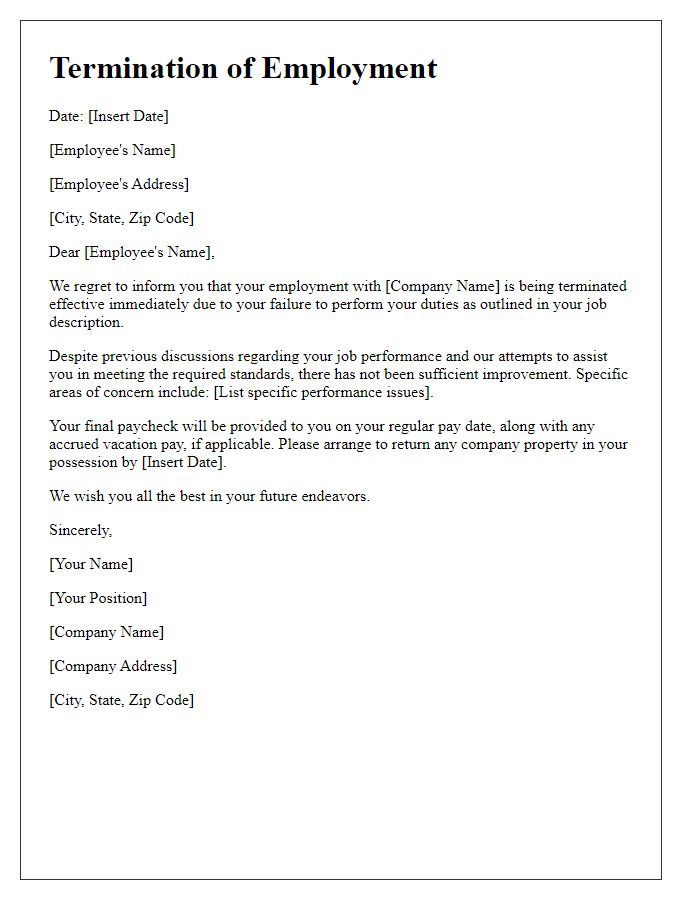
Letter template of dismissal letter for non-compliance with job functions.
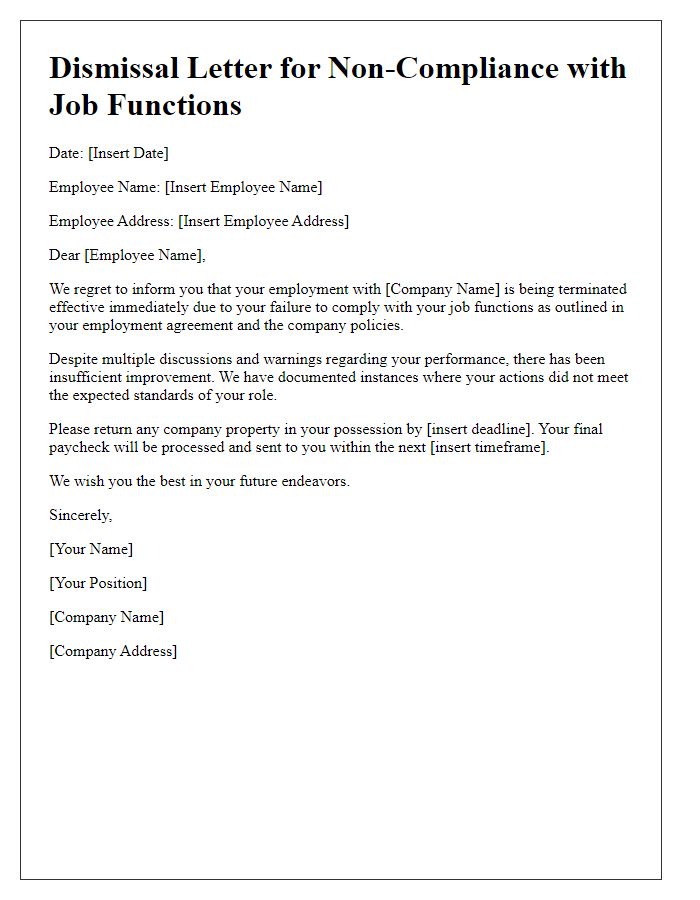
Letter template of separation notice due to non-adherence to responsibilities.
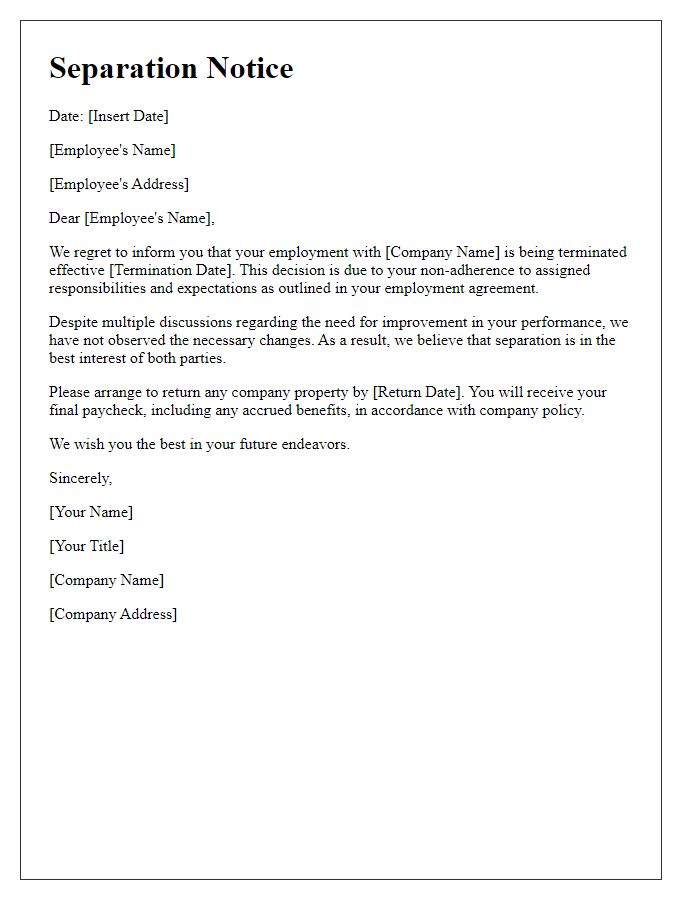
Letter template of employment cancellation for failure to meet role expectations.
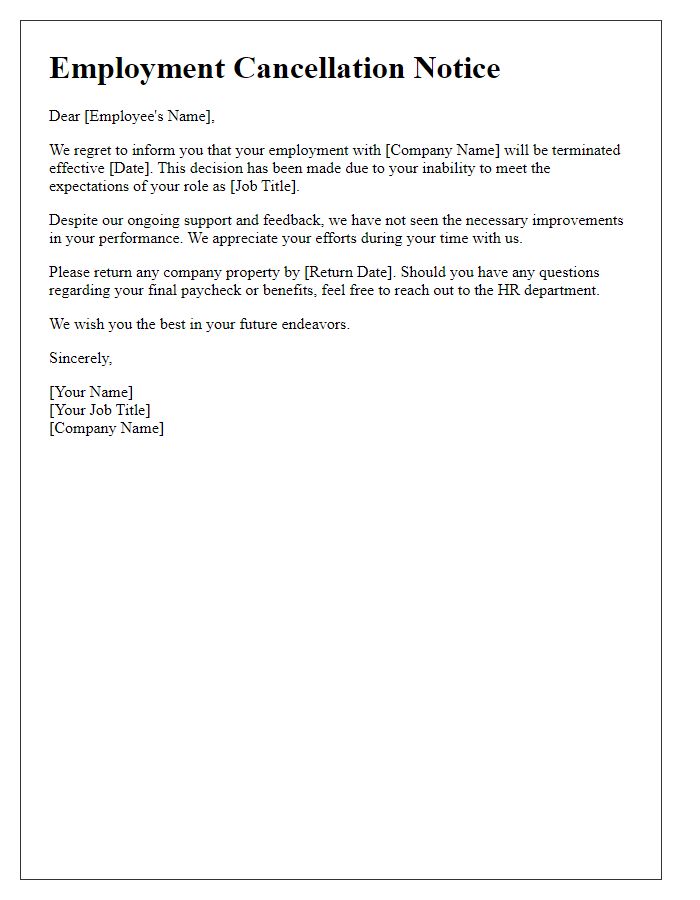

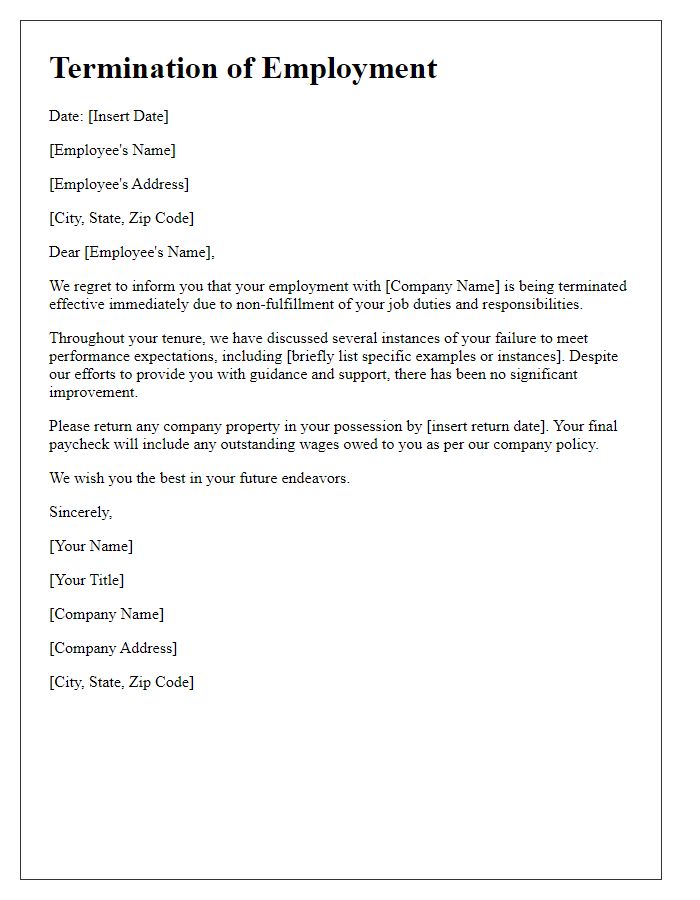
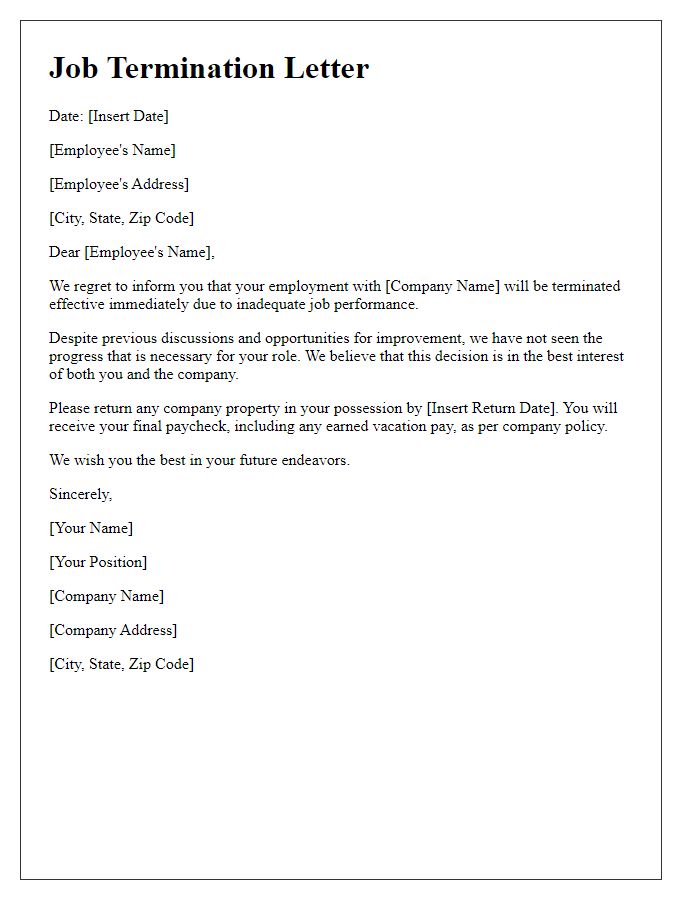
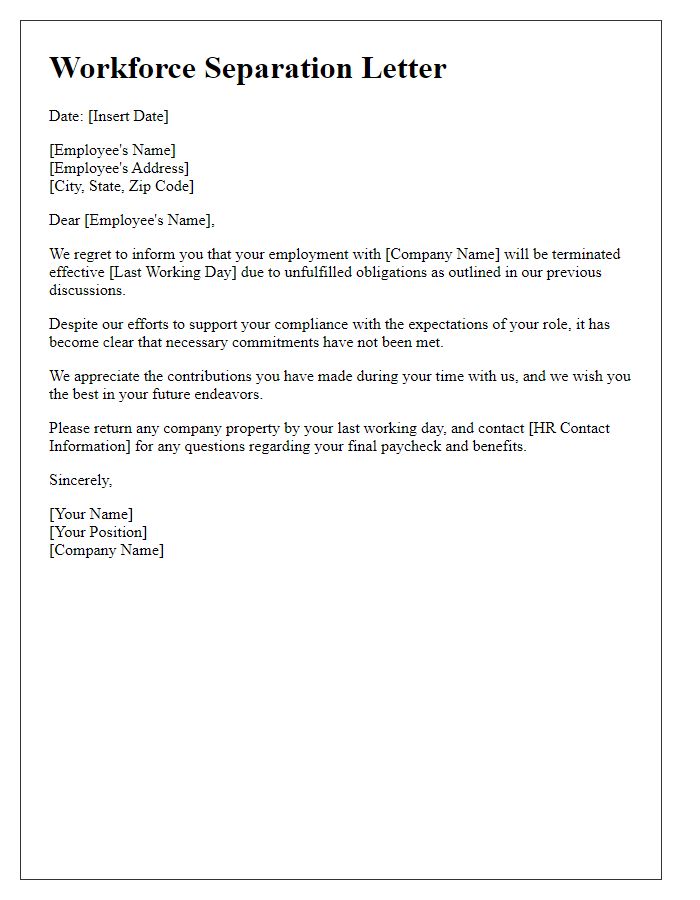
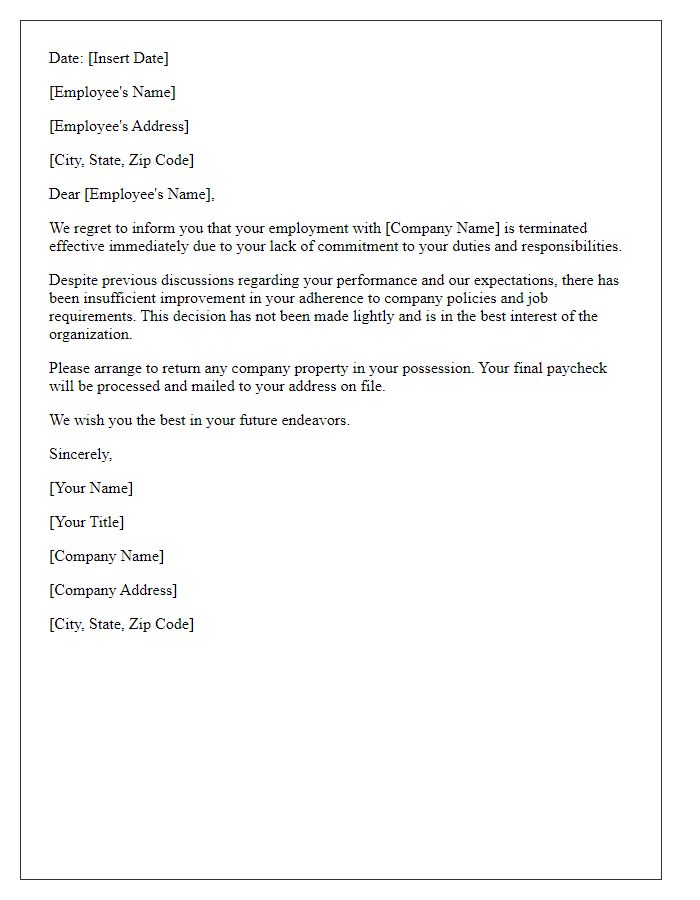
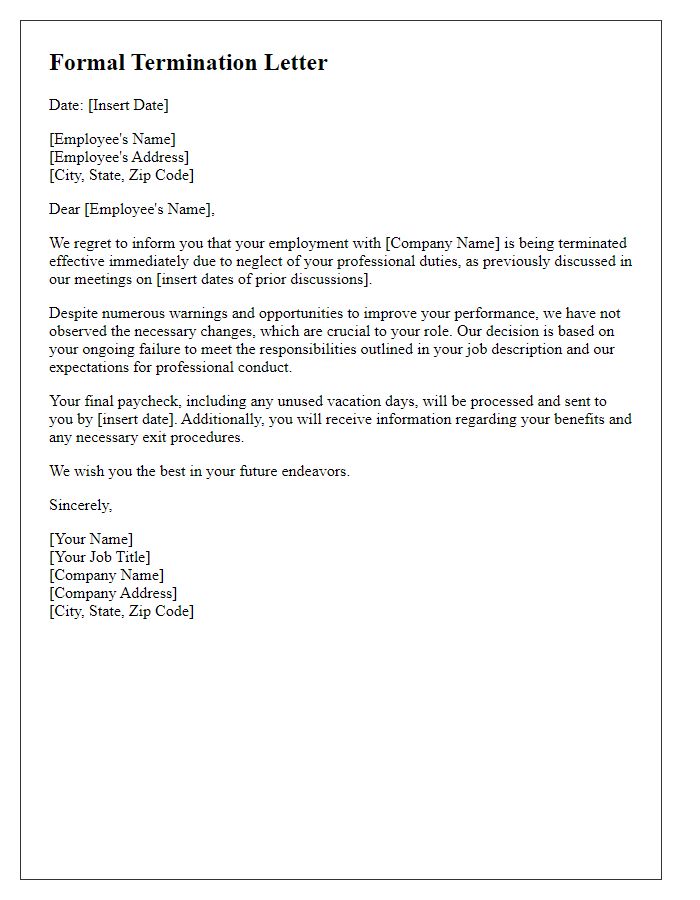


Comments